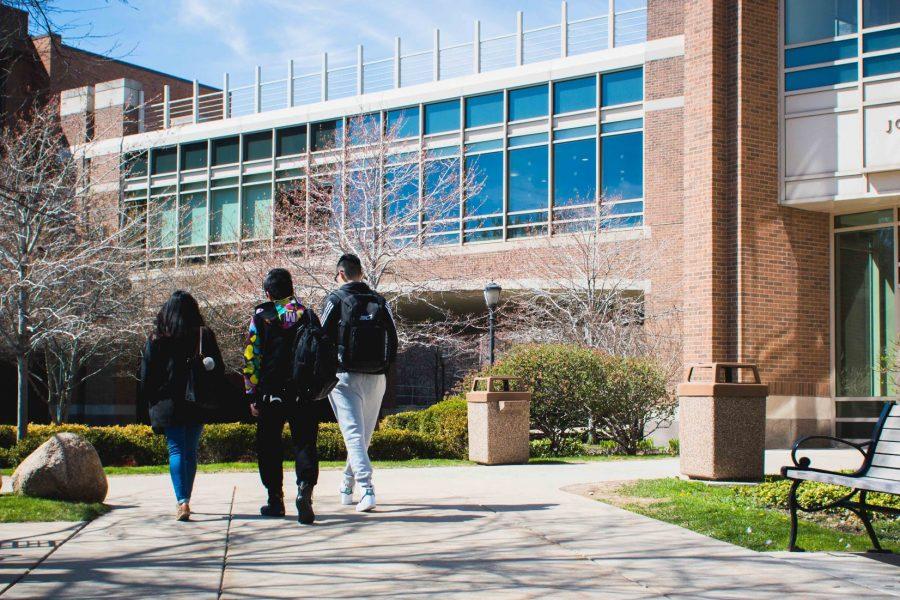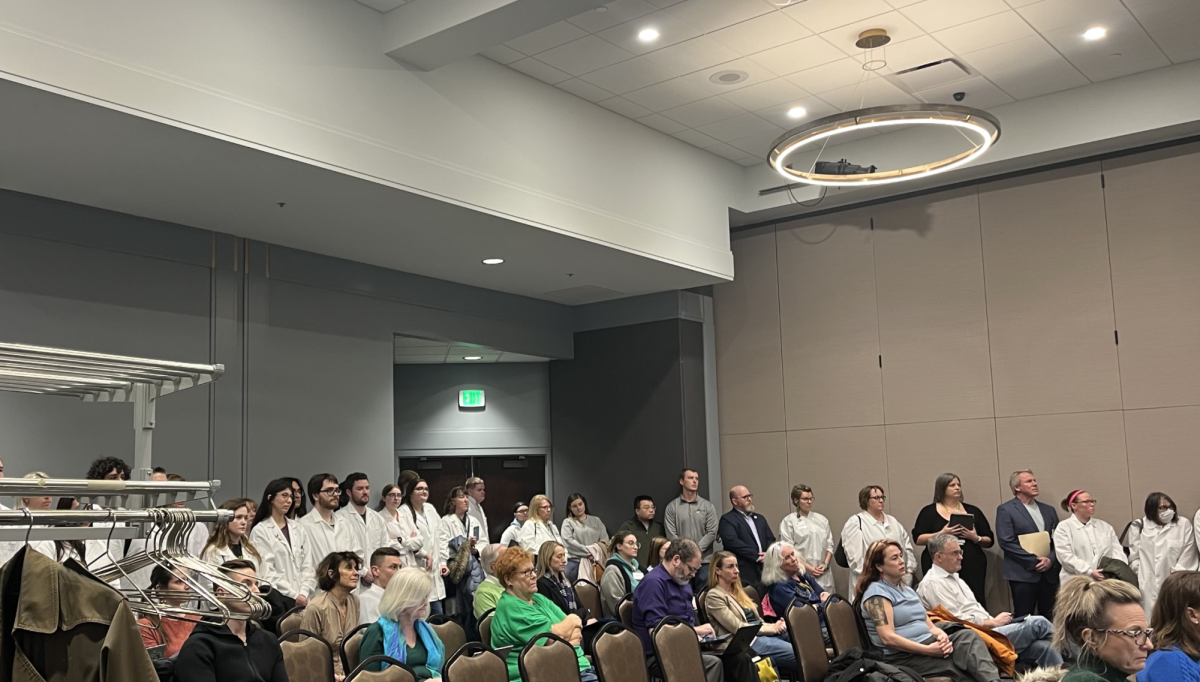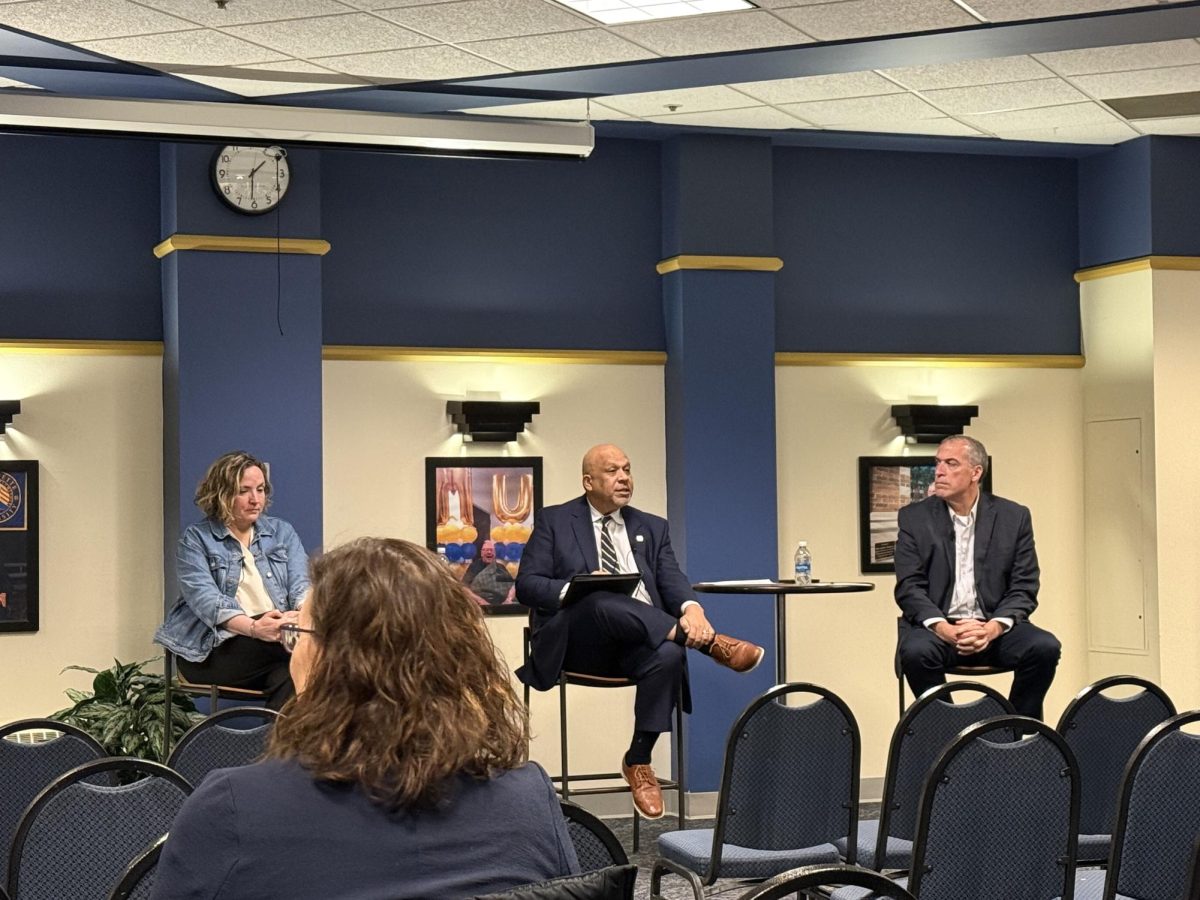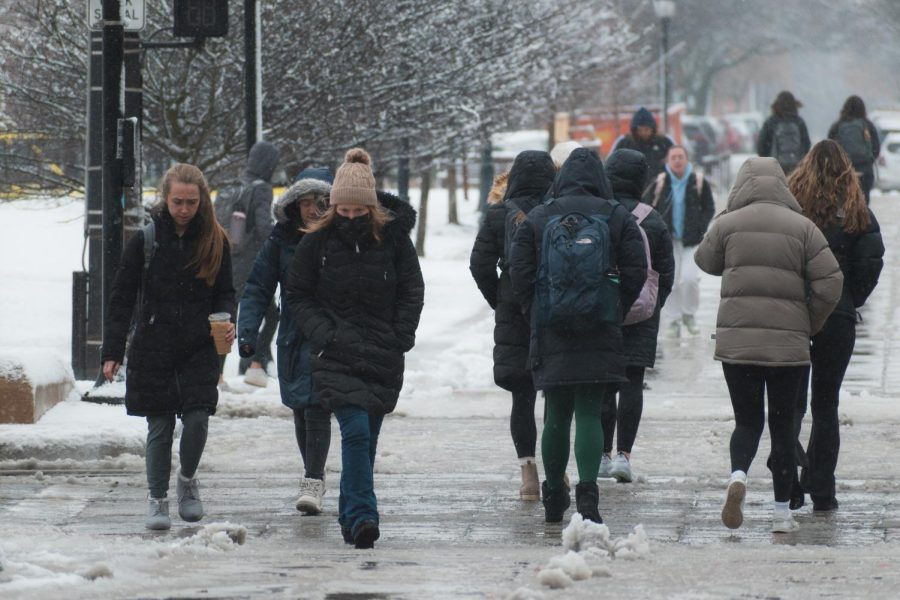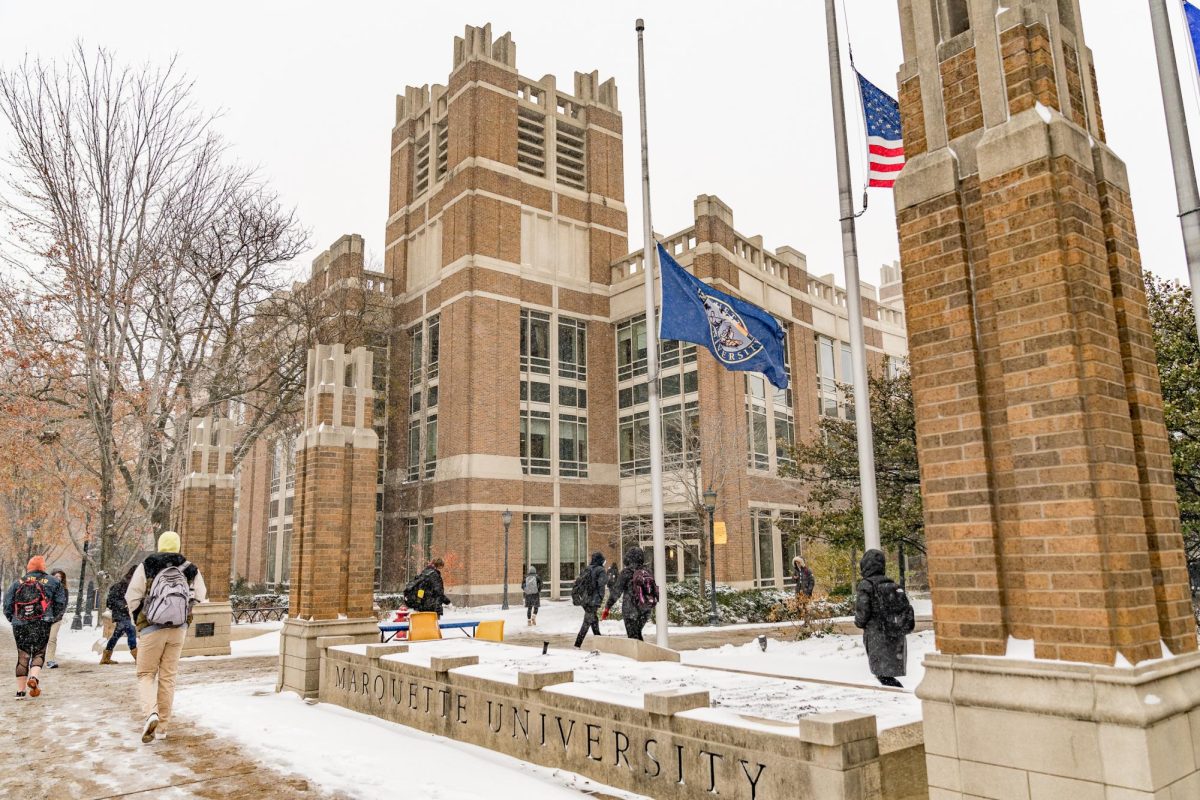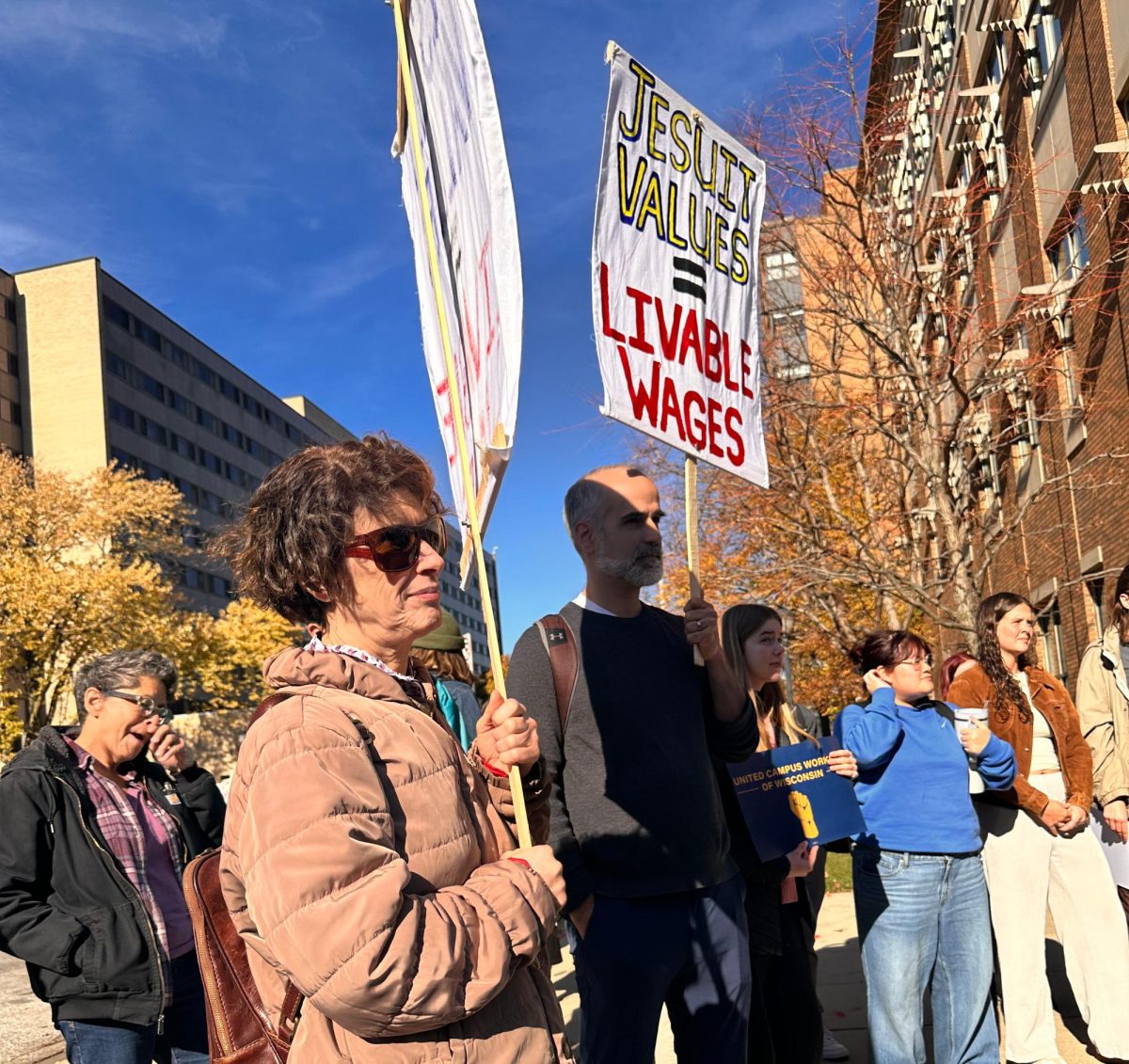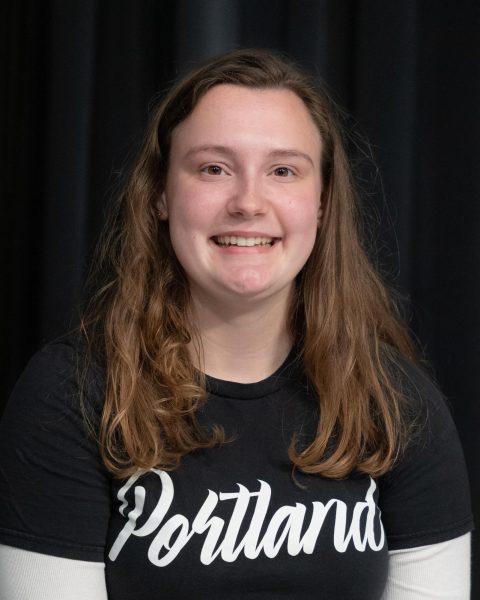Last month Marquette announced “Marquette 2031: Securing Our Future”, a plan to permanently reduce the operating budget by $31 million, starting FY 26 (beginning in July 2025), over the next six fiscal years.
A steering committee, co-chaired by Jill Guttormson, dean of the College of Nursing, and Ralph Weber, acting general counsel, was appointed by the Executive Leadership Team to head the effort.
As committee members are being finalized, an open letter from faculty at Marquette, has been signed by over 130 faculty members, largely from the College of Arts & Sciences.
The letter is asking for changes in committee policies and questioning whether or not faculty and staff will truly have a say in the process.
At the same time the co-chairs of the steering committee insist that transparency, fairness and shared governance are at the forefront of the committee’s work.
Steering Committee’s role
The committee plans to meet with campus stakeholders ranging from academic programs, facilities planning and management, to student affairs throughout the spring. Weber said that by Labor Day the goal is to have identified $11 million in operating savings and present their initial recommendations to the Executive Leadership team.
“We are starting without any preconceived notions or without any recommendations currently in front of us, we really believe that those doing the hands-on work on campus have the best lens on what the opportunities (for savings) are,” Weber said.
During the fall of this year the committee plans to complete the FY 26 budget with its recommended action steps, then present to the Board of Trustees.
“We’re using everything that we can think of, and that people will bring to us will consider, because we want this to be as thoughtful, careful and effective as it can be. And so it’s sort of a no stone unturned project,” Weber said.
Guttormson said that the committee is looking into all aspects of the university, not just the academic side.
“So for example, are there buildings where there could be more efficiency and how we utilize the space on campus? There’s an opportunity to think about whether there are more efficient ways that we can support the IT framework of the university,” Guttormson said. “It’s looking at every single unit on campus and saying where there are efficiencies … and how do we implement them in a really strategic way.”
As the committee looks for ways to cut the budget, some faculty are concerned that their or their colleagues’ jobs could be on the line. The letter references past layoffs in 2019 and 2021 that the university attributed to lower enrollment and financial challenges.
The open letter asks the committee to make decisions that avoid firings, forced retirements and contract non-renewals.
“$31M in cuts will mean program closures and likely job losses, even among tenured faculty. Cuts will also mean that overworked and understaffed units will be stretched even thinner. This is not a recipe for preserving the value of a Marquette education,” the letter stated.
Program cuts
In addition to concerns about layoffs, some faculty have expressed unease over potential closures of academic programs. The open letter cites the faculty handbook provision that only the University Board of Undergraduate and Graduate Studies can make recommendations on adding or removing academic programs before bringing them to the Academic Senate for approval.
The letter alleges that since faculty have only been asked for their input, the steering committee could be in violation of the provision should they choose to recommend cutting an academic program. There are currently over 70 programs, according to data from the Office of Instiutional Research and Analysis that have five or less students enrolled in them.
“You may have seen some information about whether it’s X number of programs that have Y number of students, that only says, we should look at that. That doesn’t mean there’s any decision made about what’s going to happen,” Weber said. “The data is an opportunity for inquiry. The inquiry is holistic, and includes the application of judgment and wisdom to what the data tells us.”
Guttormson said the committee aims to ensure they won’t blindside any department with their recommendations.
“I think we’re committed to being really transparent in what was the rationale for tentative decision recommendations, and then ensuring that that rationale is shared with the units that will be impacted,” Guttormson said.
Committee Membership
The steering committee is composed of the co-chairs, 18 members from varying departments across the university (not including students), two project managers and four additional representatives from the University Academic Senate.
The representatives from the Academic Senate have yet to be made public. Chris Stockdale, Chair of UAS, said at the April 8 senate meeting that 14 people were nominated. The UAS executive board selected the four representatives. In addition, four other members of the Academic Senate had already been a part of the steering committee.
However, the faculty that signed the open letter are pushing for the steering committee to have UAS appoint 50% of the members, plus one additional seat. At the moment less than 25% of the steering committee members are part of the Academic Senate.
Some members of the Marquette community are also asking the steering committee to expand membership to students.
“The purpose of the steering committee is to ensure the health of the university and to ensure that we can educate the next generation … so why are there no students on this steering committee? If this is about students why aren’t they included,” Tim Houge, a graduate student, said at the April 8 Academic Senate meeting.
Guttormson said the non-disclosure agreement that steering committee members must sign discourages them from including students.
Non-Disclosure Agreements
The open letter from faculty has asked the steering committee to remove the non-disclosure agreement requirement, saying that it violates widely accepted definitions of shared governance.
However, Weber and Guttormson both said that the NDAs are essential to the committee’s work.
“It’s really important that within those group discussions that people know, what we talk about in this room is going to stay in this room until the report comes at the end of the process,” Weber said.
In addition to helping create an open environment to share ideas, Weber said the committee will also be accessing confidential financial information.
“In order for this to work, you need to have access to nonpublic information, and it’s fair and appropriate for that nonpublic information to remain non-public,” Weber said.
Teams site
Throughout the process, a Microsoft teams site related to the initiative will be available for anyone with a marquette.edu email address to share ideas anonymously. There is also a FAQs section that Weber and Guttormson said will be updated regularly.
Sophia Tiedge, Hope Moses, Gabe Mannion and Ellie Golko contributed to this report.
This story was written by Megan Woolard. She can be reached at megan.woolard@marquette.edu or on Twitter/X @MeganWoolard4.


